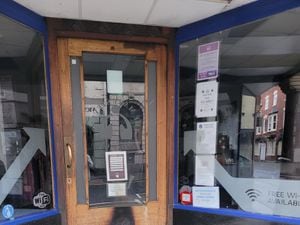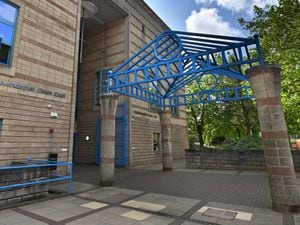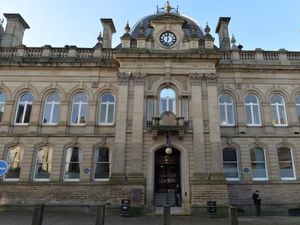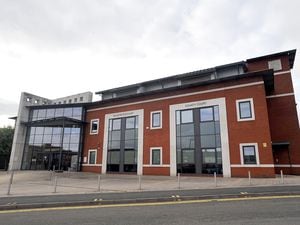Rising cost of security as more than 2,300 crimes committed at places of worship
More than 2,300 crimes have been committed at places of worship in the West Midlands over the last five years, new figures reveal.
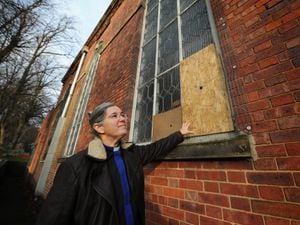
Churches, mosques and other places of worship were targeted, as offences included violence, theft and criminal damage.
Figures showed the number of crimes rose every year until 2019, although there is expected to be a small drop this year.
Crimes have ranged from lead being stripped from roofs to hate crime attacks.
By far the most offences were carried out at churches – 1,481 since 2015. There were 504 at mosques and 213 at gurdwaras, data released by West Midlands Police showed.
The most common offence was violence against the person. Attacks rose from 91 in 2015, to 172 in 2018. As of November, there had been 137 this year.
Countless
Theft and handling stolen goods, burglary and criminal damage were the other offences carried out most often.
Lead has been stripped from countless church roofs over recent years.
And in November, Arman Rezazadeh, aged 34, was jailed for a series of sledgehammer attacks on Birmingham mosques eight months earlier.
There was also a suspected hate crime outside the Gujarati Hindu Social and Cultural Centre in Walsall in July, with CCTV showing a man wearing a hooded jacket repeatedly swinging what appeared to be a wooden stick at religious sculptures and damaging them.
In 2017, an investigation found hate crimes targeting mosques and other Muslim places of worship across the UK more than doubled following the EU referendum.
Police forces recorded 110 hate crimes directed at mosques between March and July 2017, up from just 47 over the same period in 2016.
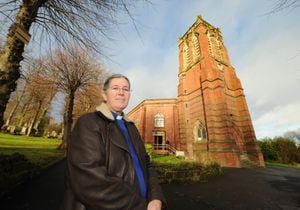
Thousands spent on security at holy places targeted for valuables
For those that have faith they are sanctuaries, a place to go for prayer and connect with their god.
And for those who don’t believe there is a general acceptance among decent people they should respected, treated with care and left alone.
But all too frequently churches, mosques, gurdwaras, temples and other places of worship are targeted by criminals.
An attack on a place of worship often prompts a wave of disbelieving fury, a feeling that it is an affront on a particular culture, that nothing is sacred. It’s not just a break-in - it’s a break-in at a holy place.
It was revealed this week that more than 2,300 crimes have been carried out at places of worship over the last five years, with a big increase year on year since 2015.
There have been a range of crimes on the seriousness scale, from petty thefts to raids costing thousands of pounds in damage and, worst of all, hate crimes.
Churches are often targeted for their valuables, be it lead in the roof or treasures inside.
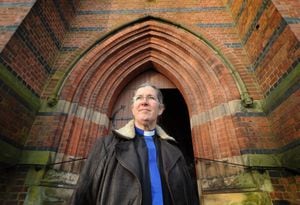
Reverend Katryn Leclezio, from St Peter’s in Cradley, believes churches often come under attack due to their relative isolation and a lack of policing.
The church was one of several which were targeted by a gang in a string of raids in 2017 and she says the problems have continued since.
“We had an attempted break-in here last week,” she said. “I think the church is seen as an easy target because our building is a little bit on its own on the top of a hill, it’s under-supervised, and I think the lack of policing means for local youths anti-social behaviour is just easier. They think they can get away with it and they do get away with it.
“There are targeted because of their geographical isolation. A Church of England is normally in a churchyard or a cemetery and means it is a little bit more far away from where the footfall might be.
“I don’t think they are particularly targeted because they are churches, they are targeted because they are unpoliced.”
Sad
Ammar Khan, from the Jamia Mosque in Smethwick, said: “The last 12 months I don’t know what it is, whether it’s austerity or cuts, some people are just crazy and will grab anything and sell it for scrap and make some money.
“Many times I have come across the situation, it’s very sad to see all this happening.”
Various types of crimes have been committed at places of worship over the last five years, including 89 sexual offences.
Offences rose steadily between 2015 and 2018. In total, there were 394 in 2015, 423 in 2016, 500 in 2017, while in 2018 there were 559.
It looks as though that trend will be broken this year, with a total of 439 offences committed up to November.
The figures did not show how the rate of offences at different places of worships had changed over the period.
Attacks on places of worship have led to religious leaders shelling out thousands of pounds on beefing up from security, be it from career criminals or a threat much more dangerous.
Mosques in Walsall were advised to install protective measures following the Finsbury Park terror attack in London in 2017 amid heightened tensions.
Alarms and CCTV
Mohammed Arif, who heads up mosques in Walsall, said: “Following the crash what we did was ask all member organisations to review it and a number did install CCTV.
“There is Home Office funding available for places of worship but the problem is you need to have had something happen yourself, which is not really what people are looking for.”
Rev Leclezio said: “Many of us are putting in alarms and CCTV. We are about to do that at St Peter’s. On security we have spent in the region of £9,000.
“We hope it will be a deterrent. But if people have hoods they know exactly what they are doing and are not going to be caught on camera.”
Hate crimes have been mercifully rare in the Black Country but they do happen.
Investigation
The Wolverhampton Central Mosque on Waterloo Road was the target of an ultimately failed terror attack in 2013.
Mosques in particular were put on their guard following the Brexit referendum and increasingly divisive political rhetoric.
In 2017, an investigation found hate crimes targeting mosques and other Muslim places of worship across the UK more than doubled following the EU vote.
Police forces recorded 110 hate crimes directed at mosques between March and July 2017, up from just 47 over the same period in 2016.
Mr Khan believes the threat of attacks has not gone away.
He said: “We have been facing hate crime in the last few years. The media has to play an important role in encouraging people to accept others. Islam is a religion of peace. If we come across this situation, where we see hatred we try not to react.”

